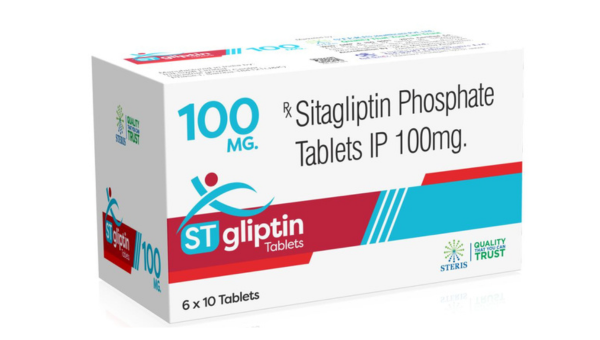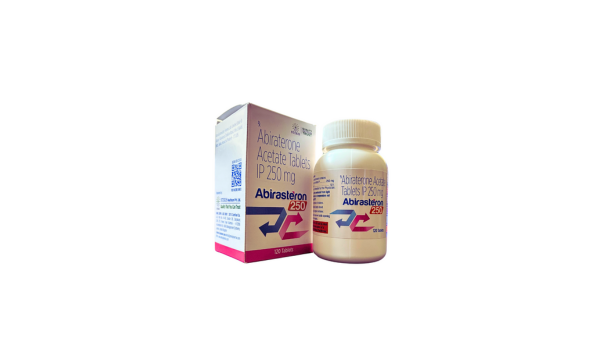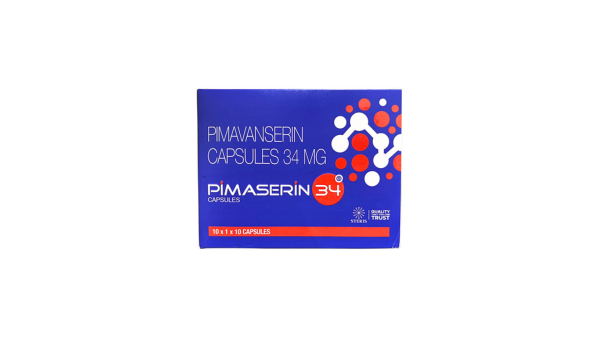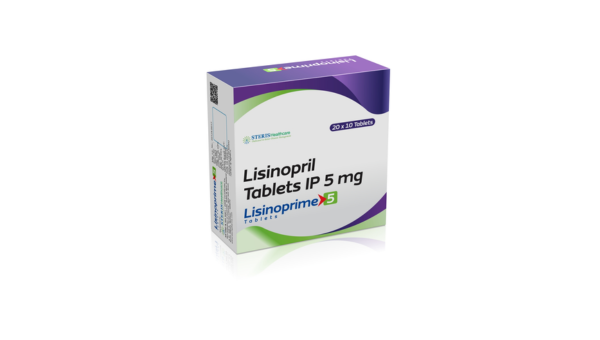Lisinopril 5mg: A Complete Guide to Uses, Benefits, Dosage, Side Effects, and More
Feb 18, 2025
Introduction
Lisinopril 5mg is an angiotensin-converting enzyme (ACE) inhibitor used primarily for the treatment of hypertension (high blood pressure), heart failure, and chronic kidney disease. It works by blocking the action of the enzyme that constricts blood vessels, thereby relaxing and widening the blood vessels. This process lowers blood pressure and helps the heart pump blood more efficiently. Additionally, it is commonly prescribed after a heart attack to improve survival and prevent further complications.
Key Benefits
- Blood Pressure Control: Lisinopril helps lower high blood pressure, which reduces the risk of heart attack, stroke, kidney damage, and other complications related to hypertension.
- Heart Failure Management: It improves symptoms of heart failure by easing the heart's workload and improving blood flow, allowing the heart to pump more effectively.
- Kidney Protection: Lisinopril is commonly prescribed for individuals with chronic kidney disease, particularly in those with diabetes, to protect kidney function and delay the progression of renal failure.
- Post-Heart Attack Recovery: After a heart attack, Lisinopril can improve heart function, reduce the risk of further complications, and increase survival rates.
- Prevention of Stroke: By managing high blood pressure and reducing strain on the heart and blood vessels, Lisinopril helps prevent stroke and other cardiovascular events.
Usage
Lisinopril 5mg is used for the following conditions:
- Hypertension (High Blood Pressure): It is commonly prescribed to help control blood pressure and prevent complications such as heart disease and stroke.
- Heart Failure: It is used to help manage heart failure by reducing the strain on the heart and improving its ability to pump blood effectively.
- Chronic Kidney Disease: Lisinopril can help protect kidney function, especially in patients with diabetes or high blood pressure.
- Post-Heart Attack: After a heart attack, Lisinopril is often used to improve heart function and decrease the likelihood of a second heart attack or related complications.
Objectives
The main objectives of Lisinopril 5mg include:
- Lowering Blood Pressure: Reduce high blood pressure to lower the risk of cardiovascular complications like stroke, heart attack, and kidney disease.
- Heart Failure Management: Improve the heart's efficiency in pumping blood and alleviate symptoms of heart failure.
- Kidney Protection: Prevent or slow down kidney damage in individuals with hypertension or diabetes-related kidney disease.
- Post-Heart Attack Care: Improve survival and reduce the risk of further heart-related issues after a heart attack.
Dosage
- Adult Dose for Hypertension: The usual starting dose for hypertension is 5mg once a day. Depending on the individual’s response, the dose may be adjusted up to a maximum of 40mg per day.
- Adult Dose for Heart Failure: The starting dose for heart failure is typically 5mg once a day. Depending on the patient's condition and response, the dose may be gradually increased.
- Post-Heart Attack Dose: After a heart attack, the typical starting dose is 5mg once a day, with adjustments based on the patient's blood pressure and tolerance.
- Pediatric Dose: The dosage for children is based on weight and condition and should be determined by a healthcare provider.
Note: It is important to follow the prescribed dosage and not adjust the dose without consulting a healthcare provider.
Possible Side Effects
Common side effects of Lisinopril 5mg include:
- Dizziness or Lightheadedness: Particularly when standing up suddenly, due to its blood pressure-lowering effect.
- Headache: Some individuals may experience headaches, especially when starting the medication.
- Fatigue: Tiredness or general fatigue may occur as the body adjusts to the medication.
- Cough: A persistent dry cough is a well-known side effect of ACE inhibitors like Lisinopril, though not everyone experiences it.
- Elevated Blood Potassium Levels (Hyperkalemia): This can be dangerous and may cause irregular heartbeats or muscle weakness.
- Low Blood Pressure (Hypotension): Especially when starting the medication or increasing the dose, Lisinopril can cause a significant drop in blood pressure.
Serious side effects (require medical attention):
- Angioedema: Swelling of the face, lips, throat, or tongue, which can be life-threatening if it interferes with breathing.
- Kidney Damage: Signs include a decrease in urine output, swelling in the legs, and fatigue.
- Liver Damage: Symptoms include yellowing of the skin or eyes (jaundice), dark urine, and pain in the upper right part of the stomach.
- Chest Pain: Though rare, chest pain may occur, and immediate medical attention should be sought if it happens.
Drug Interactions
Lisinopril 5mg can interact with several medications:
- Diuretics: Taking Lisinopril with diuretics can increase the risk of low blood pressure, dehydration, and kidney problems.
- Potassium Supplements or Salt Substitutes: These can increase potassium levels, leading to hyperkalemia.
- Non-Steroidal Anti-Inflammatory Drugs (NSAIDs): The combination of Lisinopril and NSAIDs (e.g., ibuprofen, naproxen) may reduce the effectiveness of Lisinopril and increase the risk of kidney problems.
- Lithium: The combination of Lisinopril and lithium can increase lithium levels, potentially causing toxicity.
- Other Blood Pressure Medications: Taking Lisinopril with other antihypertensive drugs can cause an excessive drop in blood pressure, leading to dizziness or fainting.
Always inform your healthcare provider about any medications you are taking before starting Lisinopril.
Lifestyle Recommendations During Treatment
- Monitor Blood Pressure: Regular monitoring of blood pressure is essential, especially in the early stages of treatment.
- Dietary Considerations: Reduce salt intake to avoid increasing blood pressure. If you are taking potassium supplements, be cautious about excessive potassium intake.
- Stay Hydrated: Adequate fluid intake is important, particularly when taking diuretics or if you have kidney issues.
- Avoid Alcohol: Alcohol can lower blood pressure and may intensify the blood pressure-lowering effects of Lisinopril.
- Regular Kidney and Liver Function Tests: Long-term use of Lisinopril may require periodic tests to check kidney and liver function.
- Stay Active: Regular physical activity can complement the effects of Lisinopril in managing heart failure and blood pressure.
FAQ (Frequently Asked Questions)
1. What is Lisinopril 5mg used for? Lisinopril is used to treat high blood pressure, heart failure, chronic kidney disease, and to improve recovery and survival after a heart attack.
2. How does Lisinopril work? Lisinopril works by inhibiting the ACE enzyme, which normally narrows blood vessels. This causes blood vessels to relax and widen, lowering blood pressure and improving blood flow.
3. How should I take Lisinopril 5mg? Lisinopril is typically taken once a day, with or without food. It’s important to follow your healthcare provider’s instructions and not to adjust the dose without consultation.
4. Can Lisinopril be taken with other medications? Lisinopril can interact with other medications, such as diuretics, NSAIDs, and potassium supplements. Always inform your doctor about any other medications you are taking.
5. What are the common side effects of Lisinopril 5mg? Common side effects include dizziness, headache, fatigue, and a dry cough. Serious side effects include swelling of the face or throat, kidney issues, or liver problems.
6. Can I drink alcohol while taking Lisinopril? Alcohol should be limited, as it can lower blood pressure and increase the risk of dizziness and fainting when combined with Lisinopril.
Conclusion
Lisinopril 5mg is a valuable medication in the management of high blood pressure, heart failure, and kidney disease. It helps improve cardiovascular health by relaxing blood vessels, making it easier for the heart to pump blood. However, it’s important to be aware of potential side effects like dizziness, dry cough, and elevated potassium levels. Regular monitoring and consultation with your healthcare provider will help ensure safe and effective use of Lisinopril.
About The Author
Steris Healthcare Pvt Ltd, known as Sterispharma, was founded in February 2018 by a team of experienced professionals in the pharmaceutical industry. Headquartered in Navi Mumbai, the company holds certifications from WHO, GMP, and ISO, reflecting its dedication to maintaining high standards of quality and safety. Sterispharma’s mission is to provide affordable, high-quality medications across India, strictly adhering to WHO guidelines. With the convenience of an online pharmacy, customers can easily order medicines with home delivery options.
For further information
Email: info@sterispharma.com / contact@sterispharma.com
Call/WhatsApp: 8209542042 , 8824175417
Recent Post

Purifying Charcoal Face Wash for Oily and Acne-Prone Skin

Foaming Face Wash with Hydrating Power for Dry Skin Relief

TOP BETA GM: Clobetasol Propionate, Neomycin Sulphate & Miconazole Nitrate Cream.

Multi-Action Pain Relief Gel – Diclofenac, Linseed Oil, Menthol, Capsaicin & Methyl Salicylate

Best Sitagliptin 100 mg Brands In India | Steris Healthcare Pvt Ltd.

Nifedipine & Lidocaine Cream – Dual Relief for Anal Fissures & Hemorrhoids

Ivabradine Controlled Release 10 mg Tablet – Heart Rate Management Simplified

Fexofenadine Hydrochloride 180 mg Tablet – Fast Relief from Allergies

ABIRASTERON 250 – Abiraterone Acetate IP 250 mg Tablet

PIMASERIN 34 – Pimavanserin 34 mg Tablet


